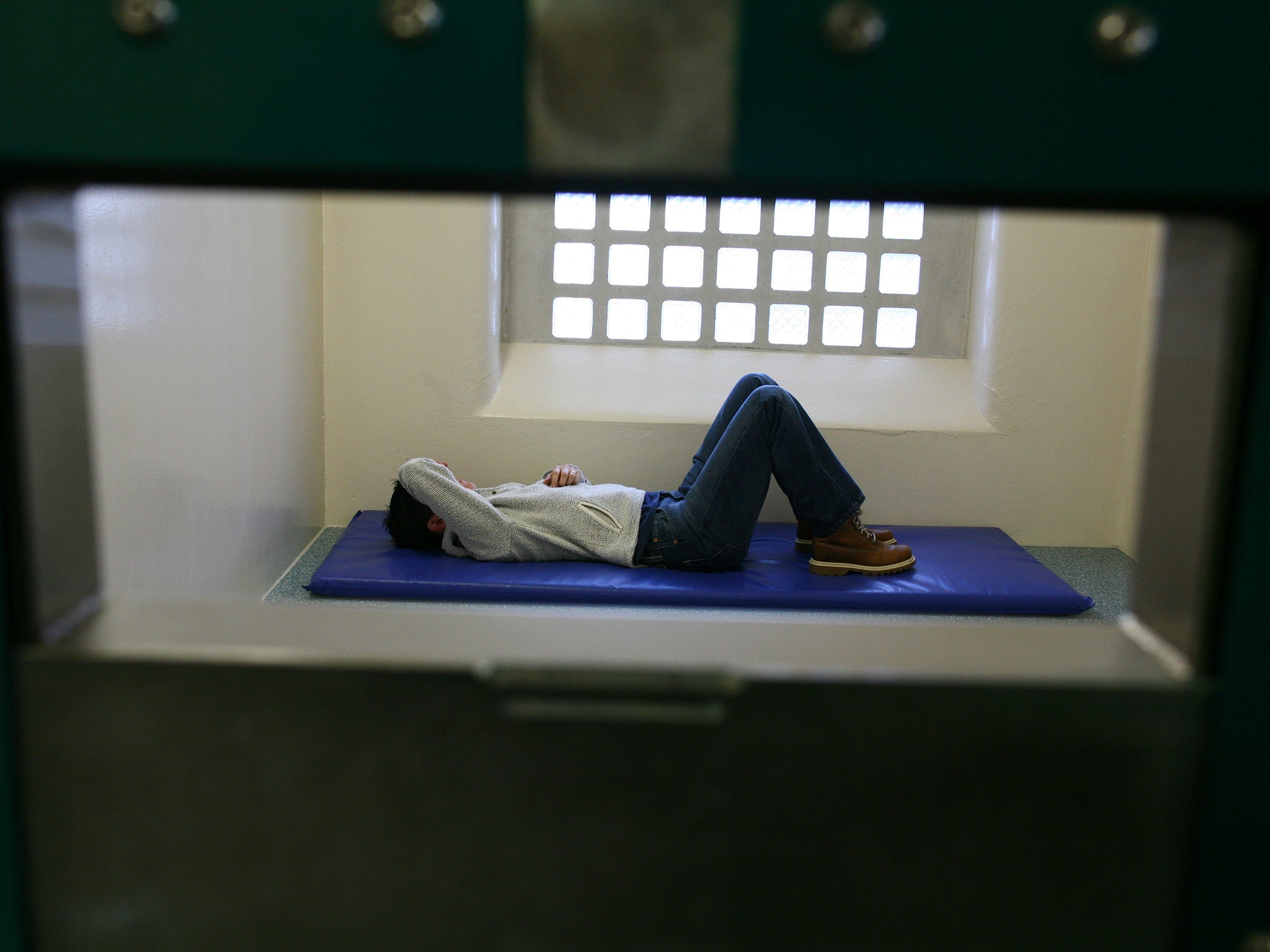‘Significant failures’ in youth custody having ‘appalling’ impact on children, prisons watchdog warns
‘No clear vision’ for improvement four years on from stark warning that no establishment in England and Wales safe to hold children

Your support helps us to tell the story
From reproductive rights to climate change to Big Tech, The Independent is on the ground when the story is developing. Whether it's investigating the financials of Elon Musk's pro-Trump PAC or producing our latest documentary, 'The A Word', which shines a light on the American women fighting for reproductive rights, we know how important it is to parse out the facts from the messaging.
At such a critical moment in US history, we need reporters on the ground. Your donation allows us to keep sending journalists to speak to both sides of the story.
The Independent is trusted by Americans across the entire political spectrum. And unlike many other quality news outlets, we choose not to lock Americans out of our reporting and analysis with paywalls. We believe quality journalism should be available to everyone, paid for by those who can afford it.
Your support makes all the difference.“Significant failures" in youth custody are having an “appalling” impact on children and the government has failed to act despite repeated warnings, the prisons watchdog has said.
In his annual report, chief inspector of prisons Peter Clarke said that nearly four years on from his warning that no establishment in England and Wales was safe to hold children, there was still “no clear vision” for improvement and described a “strategic failure” in the delivery of youth custody.
The watchdog highlighted the “catastrophic failings” at Feltham, a young offender institution in London, where he said children were locked up for “excessive” periods, without receiving proper education or reliable access to health care, under a behaviour management regime “almost exclusively focused on punishment”.
The report noted the government has said it will scrap the policy of placing children in custody in isolation - where they are unable to mix with their peers either to maintain order - after Mr Clarke warned in January that it was riddled with “significant failures” of oversight, describing it as a “disgrace”.
Describing the practice, he states in the new report: “There was no consistency in governance or practice. There was no overall data. The extent of separation and therefore any disproportion in its use was simply not known. In many cases children were being held in circumstances that amounted to solitary confinement.”
Mr Clarke concluded the outcomes for many children in prison were “appalling” and that youth custody has become “far too closely aligned with the policies and practices of adult prisons”.
The report raises concern about the response to Covid-19 in the wider prison estate, stating that time out of cell was still “extremely restricted” for nearly all prisoners, with frustrations beginning to build due to the “almost complete lack of work, training or education” – including in the children’s estate, where there has been no face-to-face education in all prisons except one.
Frustration was also mounting among prisoners due to the continued suspension of social visits which began in March, and delays in implementing a programme to deliver secure video calling for prisoners to be able to speak to their families, leaving parents unable to see their children for months.
Peter Clarke’s report notes that “far too many prisoners” felt unsafe, and that use of force had increased in every young offender institution apart from one. It states that in Feltham there was “virtually ungoverned use of force”, with three quarters of children there saying they had been physically restrained since arriving.
The report found that the documentation recording the use of force was often “inadequate or missing entirely”, with inspectors finding that 900 documents relating to the use of force were missing at Feltham.
Pain-inducing techniques continued to be used on children in every establishment, despite the watchdog’s previous recommendations that they should not be used in situations where there is no immediate threat of serious harm.
It comes after The Independent revealed at the start of this year that the number of restraint incidents resulting in child prisoners suffering injuries or compromised breathing had more than tripled since 2014, from 54 to 193 last year.
Ministers agreed in 2016 to introduce “secure schools”, where well-trained staff experienced in education, health and welfare would work with children in a supporting environment and where disincentives to learning should be avoided.
But nearly four years on, Mr Clarke said, there was still no sign of secure schools becoming reality. One site has been identified, but the facility is unlikely to open before the end of 2021 at the earliest, with no timeframe for other secure schools to open, and no overarching strategic framework or clear vision for the future.
In the wider prison estate, inspectors found that recommendations made by the Prisons and Probation Ombudsman following deaths across the prison estate were not responded to properly, with an inadequate response at some 40 per cent of prisons, despite repeated warnings.
Levels of self-harm continued to rise, with 52,496 reported incidents in male prisons in the year to March 2020 - an increase of 11 per cent from the previous 12 months.
Mr Clarke said that despite the “obvious linkage between excessive time locked in cells and mental health issues, self-harm and drug abuse”, the number of hours inmates were being allowed out was often “unacceptably poor”.
The report also raises concern about the fact that nearly half of prisoners were released homeless or to temporary accommodation, which it said was “obviously unacceptable and heightens the risk of reoffending”.
Black and minority ethnic prisoners were found to consistently report less favourably in surveys about their experiences of prison life, and inspectors found that “far too often” establishments had done “little or nothing” to understand these negative perceptions.
Youth Justice Minister Lucy Frazer QC MP said: “We want to improve the life chances of the small number of children who now enter custody.
“Their needs are complex which is why we have recruited a third more staff, trained our officers to degree level and opened specialist units for those with the most challenging behaviour.
“We need to do more and our plans for secure schools will place an even greater emphasis on education, healthcare and rehabilitation.”





Join our commenting forum
Join thought-provoking conversations, follow other Independent readers and see their replies
Comments